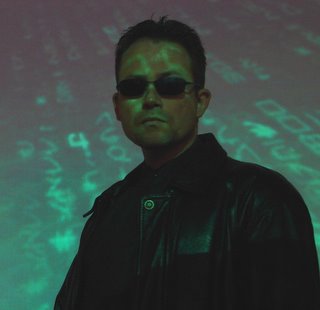- Describe the most striking revelation you had about the teaching of new literacy skills to your students as a result of this course.
One of the biggest realities and harshest realizations was the fact that we cannot keep up. There is too much to learn, too much to know, too much to do to keep pace with the rate of change in the world. At least, there is too much if one tries to know it all. The realization early on that it is not necessary to know everything, to be the best at everything, or to even be able to attempt everything, is a bit of knowledge that will become a foundational belief.
If you consider a four-year engineering degree, the amount of information learned by sophomores about their respective fields is roughly equivalent to what would have been learned in a 4-year course of study 150 years earlier. There are aspects of electrical engineering that have been dropped completely from the curriculum, where they would have comprised the better part of two years even 80 years earlier. For example, there are only a relatively few electrical engineers who continue to work with vacuum tubes. These historical artifacts are almost ignored by the computing industry, yet they are still very much sought-after in the music industry for their sonic qualities in amplifiers. This is an area of specialization that can be highly rewarding, yet is not going to help the United States stay at the top of the global commerce in our changing environment.
This type of revelation means that teachers must teach students how to learn. The classroom is not so much about content as it is about life. Granted, the content is still very much the focus of the day's work in any classroom, but the delivery of that content is what will set the master teacher apart from the turn-the-crank talking head.
- Describe how the knowledge and experience gained in this course will influence your teaching practices going forward.
For me, that means an even greater emphasis on thinking instead of just memorization. For example, a computer can be taught how to calculate derivatives and integrals in calculus. There is a prescribed process that takes a situation and processes a numerical result from it. That process is the core of what I teach in AP Calculus BC, but my job cannot end there. For calculus to be of any use, the mathematician must be able to first describe the situation mathematically, and then use that model along with the appropriate processes to analyze the problem. The computer program mentioned above can give the number, but cannot set up the model. The responsibility lies with the student to fully understand the situation, master the processes, and be able to communicate the meanings of the numerical result.
- Identify at least one professional development goal you would like to pursue that builds upon your learning in this course and develops your own information literacy or technology skills. Describe the steps you will take to accomplish this goal.
Professional development for:
- Assessing mastery in various ways
- Structuring classroom time for inquiry-based learning
- Establishing project-based methods for learning
- Connecting beginning learners to real-world applications.
To meet some of these goals, I will be participating in additional training, discussions, collaborative meetings, and workshops as our high school moves into its new role as an IB World School. Next fall, I will be teaching IB Math SL as part of our district's Diploma Programme offering. By necessity, my teaching of this class will be student-centered, project based, inquiry-based, and rich in communication of all sorts. One of the main goals of the IB courses are to equip students to be autonomous learners, readying them for work at the university level and beyond.



